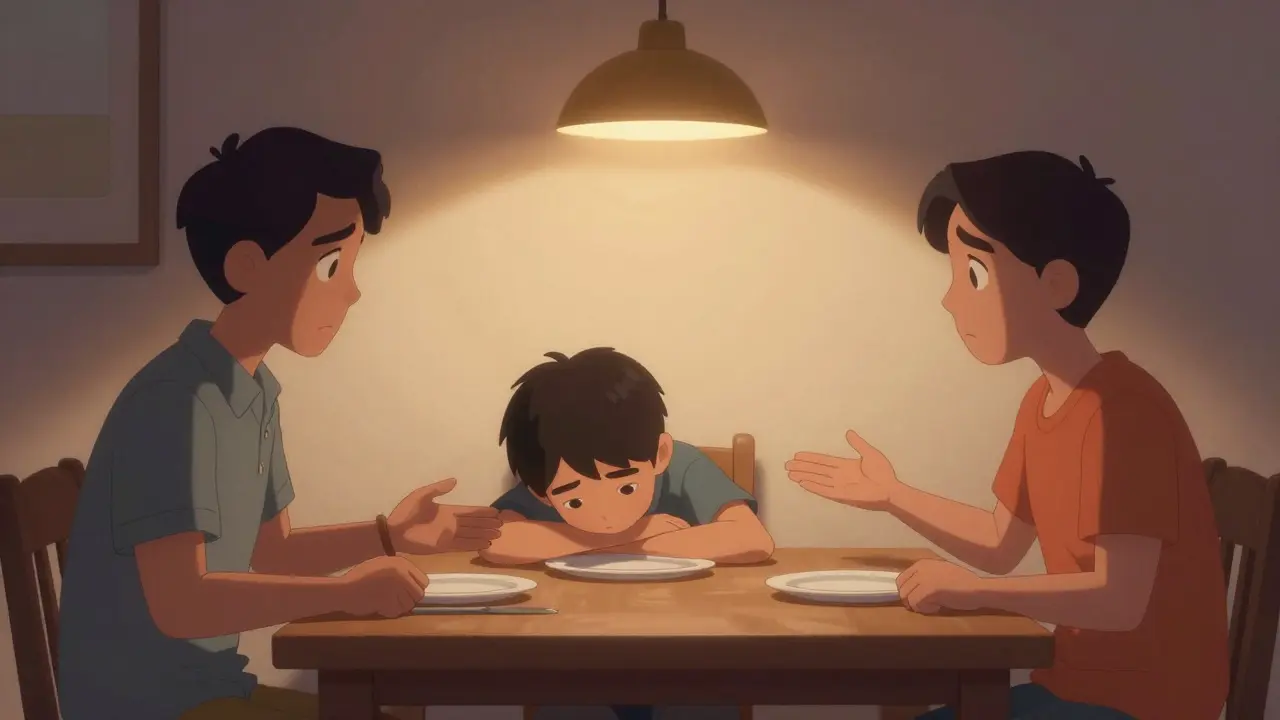Mental Health: Spotting Depression, Anxiety, and Eating Disorders Early
Mental health affects how you feel, think, and act every day. When depression, anxiety, or disordered eating show up together, recovery gets harder unless you catch the overlap. One clear example is Major Depressive Disorder showing up with anorexia, bulimia, or binge eating — a link that many miss and that our article "Major Depressive Disorder and Eating Disorders: The Hidden Link Most People Miss" unpacks. This category page helps you spot common signs, know what to ask a clinician, and take practical steps toward help.
Feeling down, losing interest in things, constant worry, or sudden changes in appetite are red flags. So are secretive eating, intense fear of weight gain, or using food to cope with emotions. If these appear with low energy, slowed thinking, or recurring negative thoughts, consider that two conditions might be present at once. Treating one without checking for the other can leave symptoms unresolved.
Recognize the overlap
When depression and eating disorders overlap, symptoms can feed each other. Depression can reduce motivation to eat or to follow treatment, while disordered eating can worsen mood through poor nutrition and social isolation. Look for patterns: has mood worsened after weight loss or binge episodes? Does avoiding meals coincide with hopelessness or self-criticism? Ask close friends or family what they notice — outsiders often see changes you normalize.
Practical steps to get help
Start by telling a trusted provider what you feel and how your eating has changed. Bring a short list of behaviors and recent examples — dates and details help clinicians spot patterns fast. A primary care doctor can check physical health and refer you to a psychiatrist, psychologist, or dietitian who treats both mood and eating issues together. Many clinics use combined plans: therapy for mood, nutritional counseling, and sometimes medication for depression or appetite regulation.
Small actions matter. Keep a simple food and mood log for a week: note meals, hours slept, and mood ratings. That data makes conversations with clinicians concrete. Build a support plan: who will you call when urges spike? Which activities help calm you? Replace perfection talk with one realistic goal each day, like eating a balanced snack or walking for ten minutes.
Therapy types that help both mood and eating problems include cognitive behavioral therapy (CBT) and dialectical behavior therapy (DBT). CBT helps change unhelpful thoughts about food and self-worth. DBT teaches skills to manage intense emotions and urges. Nutritional rehab and meal planning with a dietitian rebuilds regular eating and energy. Sometimes doctors prescribe antidepressants or medications that reduce binge urges; talk openly about side effects and goals before starting any drug. Ask about follow-up.
If you or someone you know is in immediate danger or having suicidal thoughts, call emergency services or a crisis line right away. For less urgent needs, search for local mental health clinics, community health centers, or telehealth options that specialize in co-occurring disorders. Recovery isn’t a straight line, but coordinated care and small daily steps improve outcomes.
Child and Adolescent Depression: Family Therapy and Medications Explained

Child and adolescent depression requires more than just medication or talk therapy. Family therapy rebuilds broken connections, while SSRIs like fluoxetine and escitalopram offer relief when symptoms are severe. Combining both gives teens the best chance to recover.
- December 31 2025
- Tony Newman
- 12 Comments
Major Depressive Disorder and Eating Disorders: The Hidden Link Most People Miss

Major depressive disorder (MDD) and eating disorders like anorexia, bulimia, and binge eating often show up together. It’s easy to miss the overlap, but ignoring it can make recovery tougher. This article digs into why these conditions connect, how they affect each other, and what signs to look for. You’ll also find practical tips for getting help. Understanding this tricky relationship can make a huge difference in managing both.
- April 27 2025
- Tony Newman
- 19 Comments
